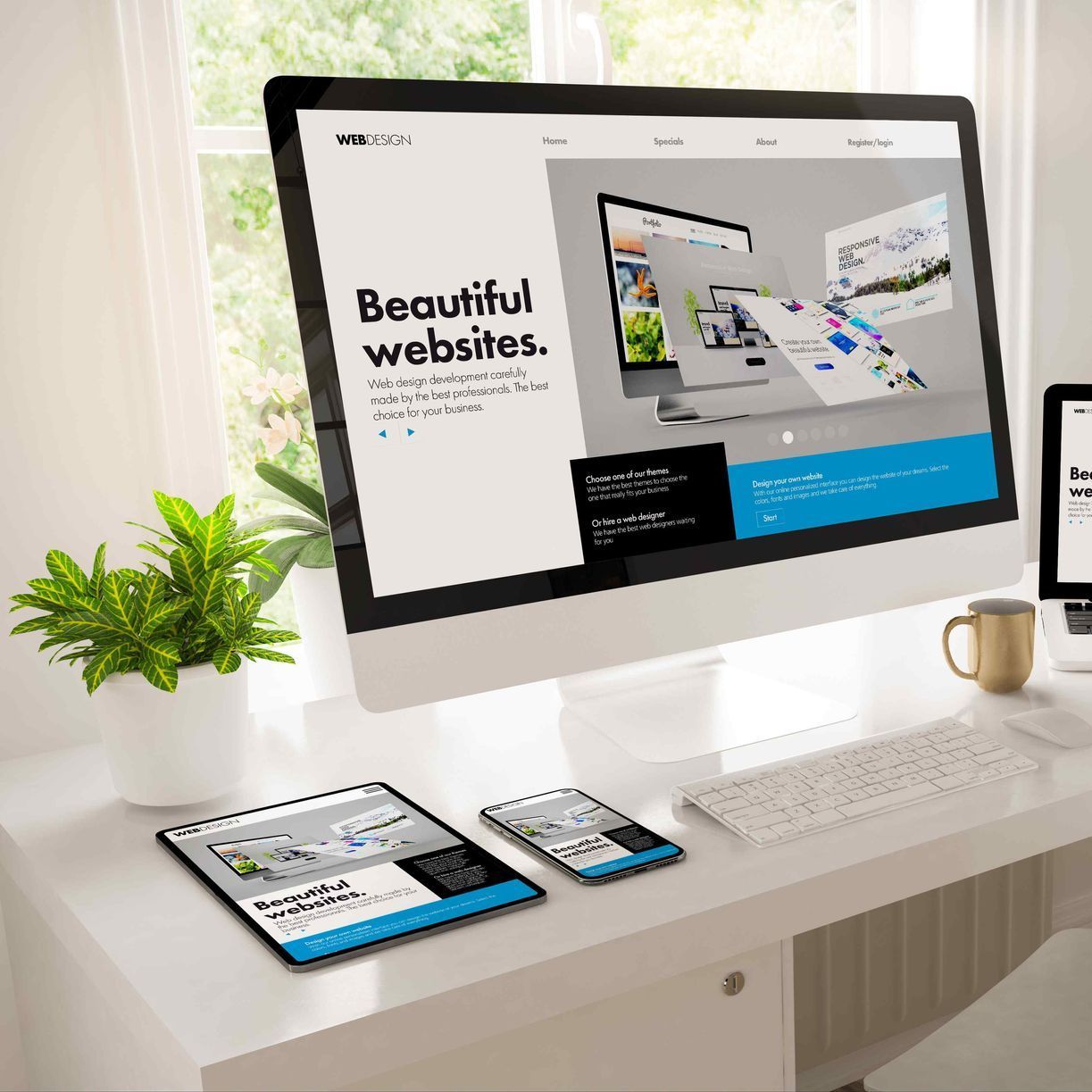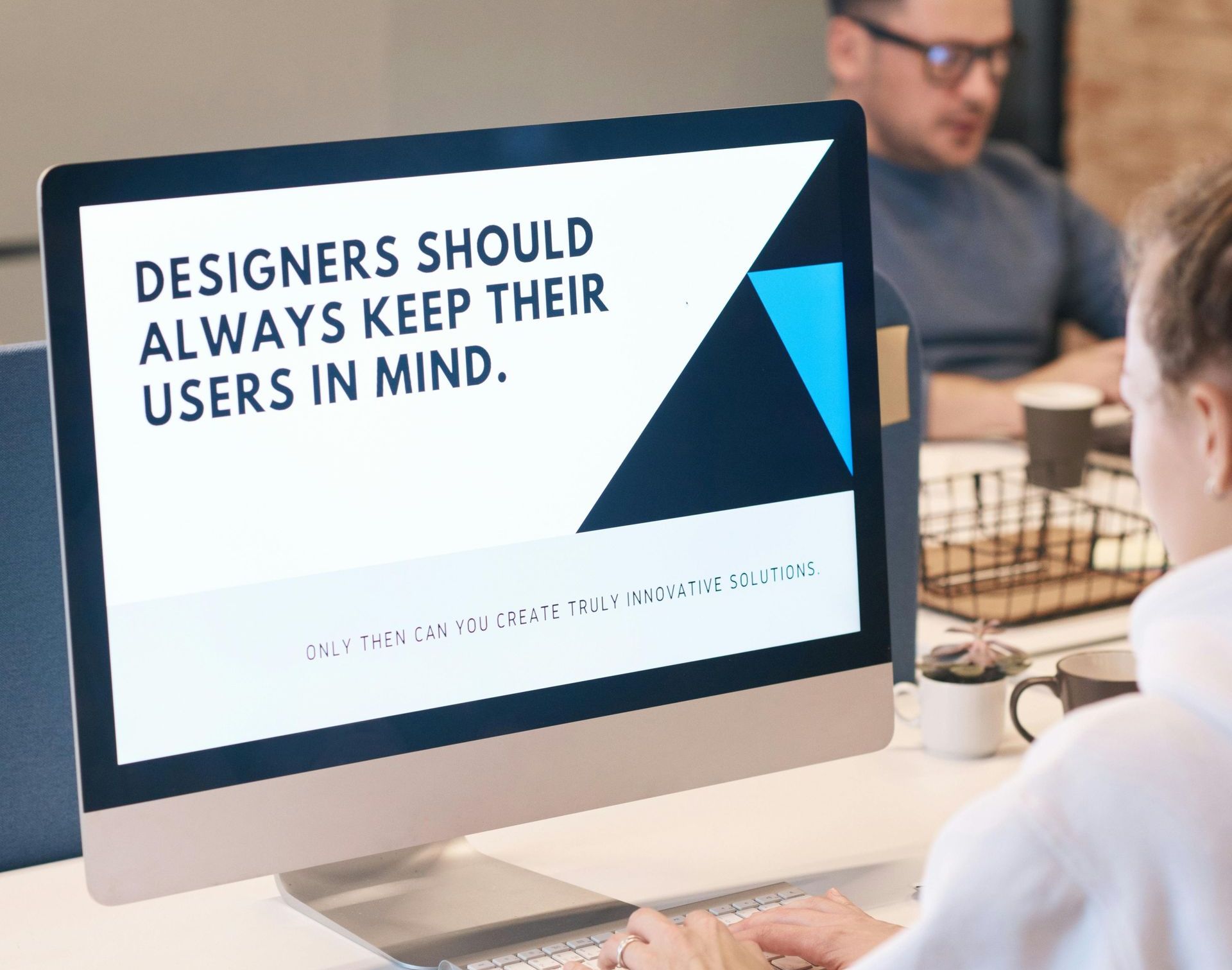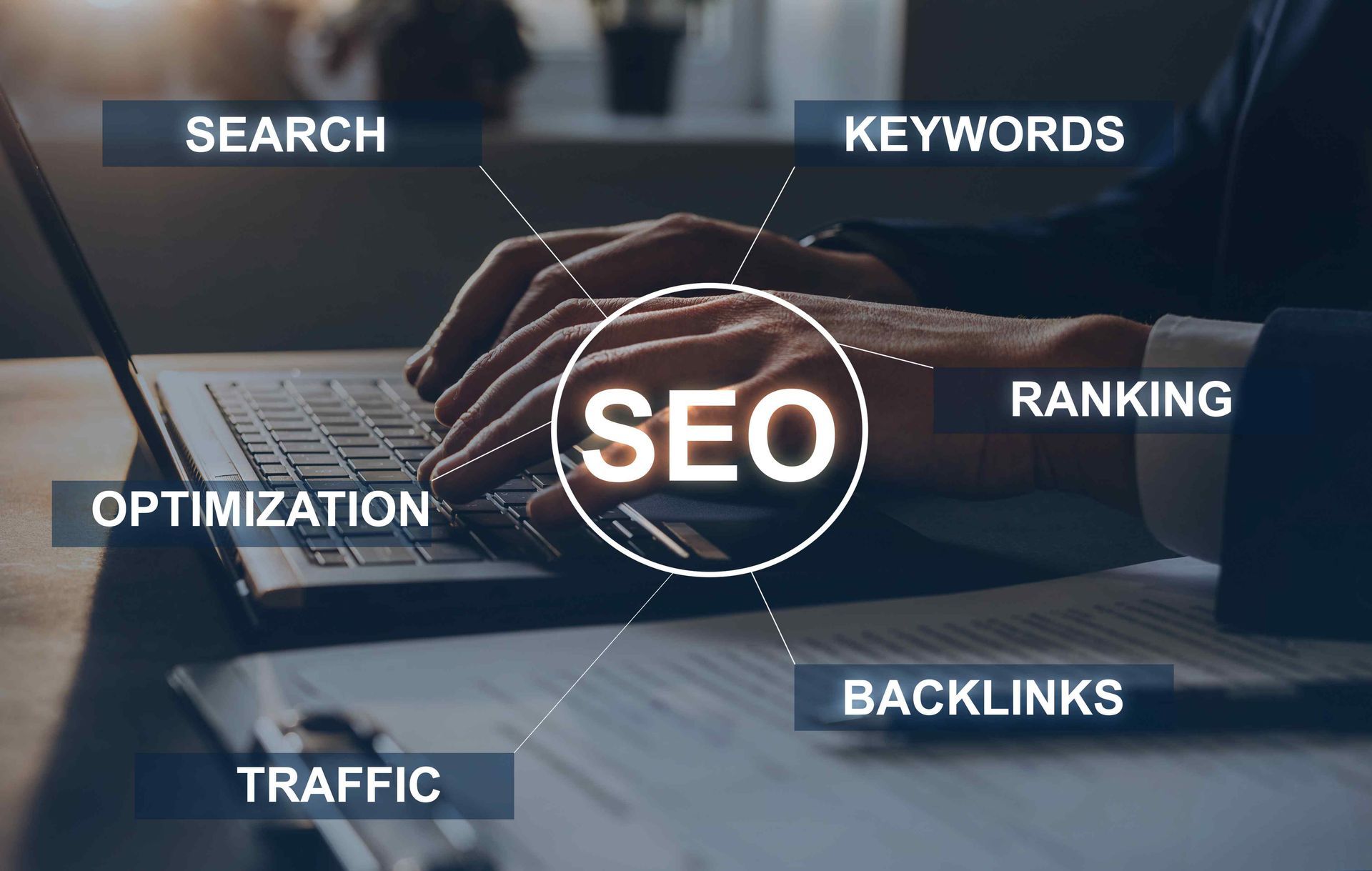The Evolving Demand for Web Design in Today's Digital Age
Why Web Design is More Important Than Ever

People expect fast, user-friendly, and visually appealing websites that make it easy to find what they’re looking for. As technology and user preferences keep changing, the demand for effective web design continues to grow. Businesses that prioritize modern web design are better positioned to engage visitors, build trust, and convert clicks into customers.
The Evolution of Web Design
Web design has come a long way since the early days of the internet. At first, websites were mostly text-based and focused on functionality. But as people started spending more time online, the need for visually appealing and user-friendly designs grew. This led to the introduction of HTML and CSS, which allowed designers to add colors, images, and layouts that caught users’ attention.
With the rise of Web 2.0, websites became more interactive. Features like blogs, social media integration, and user-generated content became the norm. Suddenly, websites weren’t just information sources—they were community hubs. This shift changed how people interacted with brands online.
Today, with the majority of users browsing on mobile devices,
responsive web design is crucial. Websites must automatically adjust to different screen sizes and orientations, ensuring a seamless experience on phones, tablets, and desktops. As technology keeps evolving, so do web design trends, making it important for businesses to stay updated to stay competitive.

Why Good Web Design Matters for Businesses
A well-designed website isn’t just about looking good—it’s about building trust and driving results. Your website is often the first point of contact between your business and potential customers. If your site looks outdated or is hard to navigate, visitors may leave without even giving your business a chance.
Here’s why investing in professional web design is so important:
- First Impressions Matter: Your website reflects your brand’s values and professionalism. A clean, modern design builds credibility.
- User Experience (UX): Easy navigation and clear calls to action (CTAs) make it easier for visitors to engage with your content and take the next step, like filling out a form or making a purchase.
- SEO Boost: Search engines like Google favor websites with good UX, fast loading speeds, and mobile-friendly designs. Better rankings mean more visibility and traffic.
- Higher Conversion Rates: Effective web design guides users through your sales funnel, increasing the chances of turning visitors into customers.
Hiring a Professional Web Designer vs. DIY Web Design

When building a website, businesses often wonder whether to hire a professional web designer or go the DIY route. While both options have pros and cons, hiring a professional web designer is usually the better choice for serious businesses. Here’s why:
Hiring a Professional Web Designer:
- Expert Knowledge & Experience: Professional web designers bring years of experience and a deep understanding of design principles, user experience (UX), and SEO. They know how to create custom designs that not only look great but also drive engagement and conversions.
- Customization & Uniqueness: A professional web designer can create a website that’s unique to your brand, helping you stand out in a crowded digital space. Unlike DIY templates, custom designs are tailored to your business needs, goals, and target audience.
- SEO Optimization: Professionals know how to design and optimize your site for search engines, ensuring higher rankings and better visibility. This includes keyword integration, fast loading speeds, and mobile responsiveness.
- Time and Cost Efficiency: While hiring a web designer requires an upfront investment, it saves you time and avoids the costly mistakes that often come with DIY website builders. A professionally designed website is built to scale as your business grows.
- Ongoing Support & Maintenance: Professional web designers often offer ongoing support, ensuring your website stays updated, secure, and functioning smoothly. This peace of mind lets you focus on your business instead of troubleshooting web issues.
Choosing to hire a professional web designer not only saves time but also provides a strategic advantage. The investment results in a high-quality, SEO-optimized, and user-friendly website that effectively represents your brand and converts visitors into loyal customers.
DIY Web Design:
While DIY website builders like Wix, Squarespace, and WordPress offer cost-effective solutions, they come with limitations:
- Limited Customization: DIY platforms provide templates that may look good but are often overused, making it difficult for your website to stand out.
- Learning Curve: If you’re not tech-savvy, it can take a lot of time to learn the platform, design the site, and troubleshoot issues.
- Basic SEO Features: Most DIY builders have limited SEO capabilities, which can impact your site’s visibility on search engines.
- Lack of Advanced Functionality: If you need custom features or complex integrations, a DIY website may fall short.
- Ongoing Maintenance: You’ll be responsible for updates, security, and technical support, which can be time-consuming.
While DIY web design can be a temporary solution for startups with tight budgets, it’s generally not the best choice for businesses that want to scale or need a professional online presence.
How User Experience (UX) Shapes Web Design

User Experience (UX) is all about making sure your website is easy and enjoyable to use. A positive UX keeps visitors on your site longer and encourages them to take action, like making a purchase or signing up for a newsletter.
To create a great UX, designers focus on:
- Intuitive Navigation: Making it easy for users to find what they’re looking for.
- Visual Hierarchy: Organizing content so that the most important information stands out.
- Fast Loading Speeds: Ensuring pages load quickly to reduce bounce rates.
- Mobile Responsiveness: Making sure the site works smoothly on all devices.
- Accessibility: Designing for people with different abilities, like adding alt text for images and ensuring good color contrast for readability.
-
By focusing on UX, web designers can create websites that not only look good but also keep visitors engaged and coming back for more.
Best Practices for Effective Web Design
To create a successful website, consider the following best practices:
- Keep It Simple: Avoid clutter and keep navigation straightforward. A clean layout helps users find information quickly.
- Consistent Branding: Use consistent colors, fonts, and logos to strengthen your brand identity.
- Call to Action (CTA): Include clear and persuasive CTAs that guide users toward taking the next step.
- SEO Optimization: Use SEO best practices like meta tags, keyword-rich headings, and alt text for images to improve your search engine rankings.
- Fast Loading Times: Compress images and minimize code to ensure quick load times, which boosts SEO and user satisfaction.
- Mobile Optimization: Make sure your website is fully responsive and functions well on all devices.
- Accessibility Features: Ensure your site is accessible to all users, including those with disabilities, by using proper heading structures, alt text, and color contrast.
The Role of SEO in Web Design

Search Engine Optimization (SEO) and web design go hand-in-hand. A beautifully designed website won’t be effective if nobody can find it. Here’s how SEO and web design work together:
- Site Structure: A clear and logical site structure helps search engines understand your content, boosting your visibility in search results.
- Mobile-Friendliness: Google prioritizes mobile-friendly sites in its rankings, making responsive design crucial.
- Page Speed: Faster loading times enhance user experience and improve SEO rankings.
- Keywords and Content: Using targeted keywords in your headings, meta descriptions, and content helps search engines understand your site’s relevance.
Final Thoughts: Why Web Design Matters
Web design is more than just aesthetics; it’s about building a functional and engaging platform that connects businesses with their audience. A well-designed website enhances user experience, supports SEO, and drives conversions.
Whether you’re a small business owner or a large enterprise, investing in professional web design is crucial for success in today’s digital world.
Ready to start your web design journey? Contact Website Flo, LLC today to see how professional web design can help your business grow!


SERVICES
Contact Info
Business Hours
- Mon - Fri
- -
- Sat - Sun
- -
2022 All Rights Reserved | Website Flo


